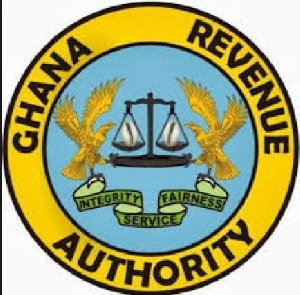The Ghana Revenue Authority (GRA) has allayed fears of the public that the tax incentives announced by the Finance Minister in the 2017 Budget would hinder its tax collection efforts.
In line with the Government’s election campaign promises, the Finance Minister, Mr Ken Ofori-Atta, in the 2017 Budget Statement to Parliament, announced the scraping off of some “nuisance taxes”.
These include import duty on spare parts, tolls charged by local authorities on head porters, the one per cent Special Import levies, the 17.5 per cent VAT/NHIL on financial services, excise duty on petroleum, tax incentive for young entrepreneurs, among other tax reliefs, aimed at engendering economic growth.
Mr Emmanuel Kofi Nti, the Acting Commissioner-General of the GRA, told journalists at the sidelines of a media soiree in Accra, on Friday, that the tax incentives would rather boost GRA’s tax collection efforts.
According to him, it would reduce the cost of operations of businesses and make them more competitive to expand and generate more dividends, which would eventually make them receptive towards payment of taxes.
He said the GRA had been tasked to collect GH¢34 billion for the 2017 fiscal year and expressed optimism that it would achieve the target with the support of the media.
He said the media was an indispensable partner in the dissemination of relevant tax information to the public and expressed the hope that the collaboration between the GRA and the media would inure to their mutual benefits.
The media soiree was intended to enhance the good relations between the Authority and the media and provide a platform for them to interact and network so as to sustain and strengthen the bond of friendship between them.
“GRA greatly appreciate your partnership and co-operation in the area of dissemination of tax information and public education.
“We will continue to count on you for balanced reports and analysis on tax issues for your readers, listeners and viewers for our mutual benefits,” he stated.
Mr Nto noted that the Authority could not achieve its 2016 tax collection target due to non-performing economy with just 3.6 per cent gross domestic product growth rate.
He said tax collection was linked to the performance of the national economy.
He said the GRA was tasked to collect GH¢29.2 billion tax revenues for the 2016 financial year, however, it netted GH¢27.8 billion at the end of the year thus, having a shortfall of GH¢1.4 billion representing 4.9 per cent thus.
The GRA increased its nominal revenue collection by 25.4 per cent over that of the 2015 fiscal year.
He attributed the shortfall to a number of factors including non-performing economy, high operational cost by the mining, manufacturing and textile companies leading to retrenchment.
The other factors includes income tax ban in the civil service due to marginal increase in salaries, low payment of corporate taxes by banks coupled with the implementation of the ECOWAS Common tariffs and other tax exemptions on certain goods and services.
However, he said, the Authority would implement revenue enhancement measures this year to meet its target and therefore mentioned interventions such as regular tax audits, visits to businesses to retrieve outstanding taxes and field monitoring by GRA officials to businesses to ensure high compliance for VAT and National Health Insurance levies.
Other measures include regular engagements with taxpayers and stakeholders to honour their tax obligations, intensify public education to ensure voluntary compliance, staff motivation and capacity building as well as providing logistics to tax collectors for them to work effectively and efficiently.
Responding to the question of how the GRA would rope in the informal sector in the tax net, he said, the Authority would enhance tax education drive so that people would understand the need to honour their tax obligations.
He added that the sector accounted for less than four per cent of direct tax collection.
Mr Nti announced that the Authority would embark on taxpayer identification campaign to get more people to pay their taxes.
With regard to efforts by the GRA to block revenue leakages and corruption within the GRA, he said his outfit would institute stringent measures to check revenue leakages and deal decisively with individuals involved in acts that contravened the Public Financial Management Act.
Business News of Saturday, 11 March 2017
Source: GNA

















